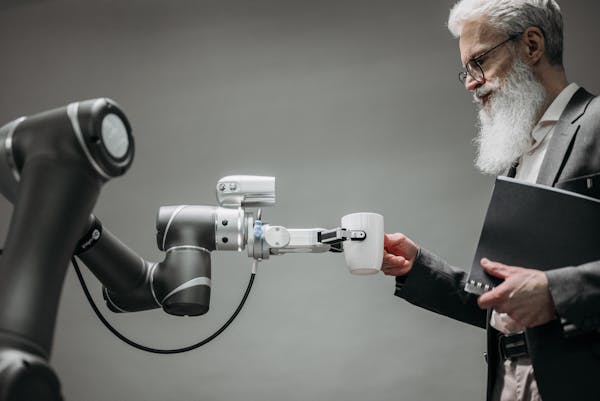Artificial Intelligence and its Rise :
Artificial Intelligence (AI) has become one of the most talked-about technologies of our time. AI is already having a significant impact on various industries, from healthcare and finance to manufacturing and transportation. In this article, we will explore the rise of AI and its impact on various industries.
First, let's understand what AI is. In simple terms, AI is the ability of machines to perform tasks that normally require human intelligence, such as visual perception, speech recognition, decision-making, and language translation. AI algorithms are designed to learn from data and improve their performance over time, making them incredibly powerful tools for a range of applications.
AI IN HEALTHCARE :
Artificial Intelligence (AI) has revolutionized many industries, including healthcare. AI refers to the development of computer systems that can perform tasks that usually require human intelligence, such as visual perception, speech recognition, decision-making, and language translation.
In healthcare, AI is used to improve the quality of patient care, reduce costs, and increase efficiency. Here are some ways AI is being used in healthcare:
Medical Imaging: AI is used to analyze medical images, such as X-rays, CT scans, and MRI scans, to detect anomalies and diagnose diseases. AI algorithms can detect patterns and anomalies in images that may be missed by human radiologists, allowing for more accurate diagnoses.
Personalized Treatment: AI can be used to analyze large datasets of patient information to identify patterns and predict outcomes. This allows for personalized treatment plans for individual patients, improving their chances of recovery.
Drug Discovery: AI is being used to accelerate the drug discovery process by analyzing large datasets to identify potential drug candidates. This reduces the time and cost of drug development and allows for more targeted and effective treatments.
Virtual Assistants: AI-powered virtual assistants, such as chatbots, can provide 24/7 support for patients and reduce the workload of healthcare professionals. They can answer questions, provide basic medical advice, and direct patients to appropriate resources.
Administrative Tasks: AI can be used to automate administrative tasks, such as scheduling appointments, managing medical records, and billing. This reduces the workload of healthcare professionals and improves efficiency.
AI IN FINANCE :
Artificial Intelligence (AI) is making a significant impact in the finance industry. The use of AI has allowed financial institutions to automate complex processes, detect fraud and make more accurate predictions. Here are some of the ways AI is being used in finance:
Fraud Detection: AI algorithms can analyze large volumes of data to detect patterns and anomalies that may indicate fraudulent activity. This can help banks and other financial institutions to prevent fraud and protect their customers' money.
Risk Management: AI can be used to analyze data and identify potential risks in the financial market. This information can be used by investors to make more informed decisions and manage their portfolios more effectively.
Trading: AI algorithms can be used to make trading decisions based on real-time market data. This can help traders to make more accurate and profitable trades.
Customer Service: AI-powered chatbots are being used by financial institutions to provide customers with fast and efficient customer service. These chatbots can answer frequently asked questions, provide account information and even help customers make transactions.
Personalized Financial Advice: AI algorithms can be used to analyze a customer's financial data and provide personalized financial advice. This can help customers to make more informed financial decisions and achieve their financial goals.








0 Comments